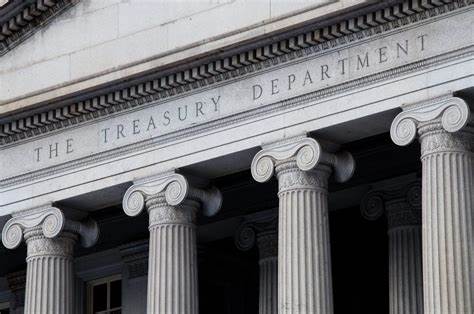
T+1 Settlement Transition: Challenges, Benefits, and the 2027 Roadmap
The global financial market is accelerating its shift to T+1 settlement, a move designed to enhance liquidity, reduce counterparty risk, and improve capital efficiency. While

The global financial market is accelerating its shift to T+1 settlement, a move designed to enhance liquidity, reduce counterparty risk, and improve capital efficiency. While

Exploring the New Mandate: How the Push for Central Clearing for US Treasury Markets Aims to Enhance Transparency, Reduce Risk and Reshape Banking Operations Last

Banking and financial service leaders face insurmountable business challenges that often require care, attention, nuanced thought, and insightful decision making. Data analytics can assist to tackle any business decision that requires prudent action. Whether trying to answer questions, detect trends, allocate capital, or extract insights, without proper data analytics, any decision maker is flying blind.

Artificial Intelligence (AI) is revolutionizing customer service in the banking industry and transforming how companies operate and interact with their customers, especially within the banking sector. AI-powered solutions allow companies to deliver personalized, efficient, and accurate service to their customers, ultimately leading to higher levels of customer satisfaction and loyalty. Through the use of chatbots, machine-learning algorithms, voice recognition technologies, and other advanced AI technologies, companies are enhancing their customer service capabilities in ways that were once unimaginable.

Dating back to the early days of the stock market, investors would trade stocks with other investors in coffee shops. Many of these low to medium-net worth investors would purchase stocks on margin, which allowed them to borrow money from their shareholders and put down as little as ten percent of the share’s value. These investments were conducted with paper slips and were solely in-person interactions.

As technology continues to advance, banking customers will increasingly require faster, more secure, and safer methods of payment. API (Application Programming Interface) is a software intermediary which allows applications to communicate with each other and plays an integral role within the banking technology ecosystem.

Despite the ongoing economic impact of the pandemic and the consequent impact on many company’s budgets, cybersecurity budgets continue to grow. While the increase in
As the world of cryptocurrency and SPACs steal the headlines, and the financial services industry grapples with the new Risk-Free Rates replacing LIBOR, topics such as change standards struggle to compete for the limelight. Change standards are policies that provide the foundations for effective organizational change management. The implementation of these policies ensures quality through a more rigorous assessment of change execution, validated through enhanced processes and artifacts to support the change.

Computing delivers software applications, data storage, and increasingly on-demand transaction processing from data centers, via the Internet or the cloud.

In the fast-paced world of modern banking, payment technology has undergone a revolution, transforming the way people conduct transactions. Gone are the days of solely relying on physical cash or checks; today’s banking landscape is dominated by digital payment solutions that offer convenience, security, and efficiency.
Main office:
New York
405 Lexington Avenue 10174
Hubs in:
Boston, MA
Chicago, IL
Raleigh, NC
Houston, TX
Miami, FL
San Francisco, CA